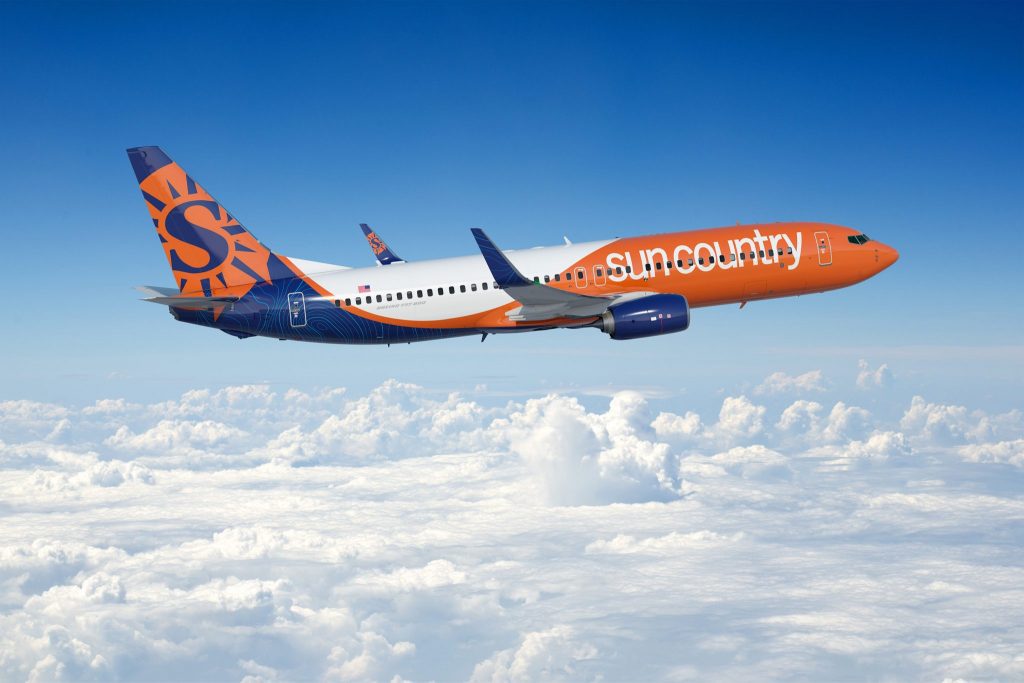Skift Take
Legacy carriers have a responsibility to lead the way on diversity and inclusion for women, but it might be the smaller, more nimble airlines that make faster progress.
The executive ranks of airlines are famously male-dominated, and it’s possible that instead of the largest carriers leading the way on diversity and inclusion, a smaller carrier may be more open to finding solutions.
“The first thing is to talk about it,” said Jude Bricker, CEO of Minneapolis-based Sun Country Airlines, about the well-documented lack of women in executive positions at airlines.
Bricker is the first man to agree to speak to Skift on this topic since we began reporting a recent deep dive on the gender gap in airline c-suites. For that deep dive, American Airlines, United Airlines, Delta Air Lines, Southwest Airlines, and JetBlue Airways — all of which have male CEOs — declined to comment on the importance of gender parity and male mentorship.
Opportunity for Change
Sun Country’s current period of rebuilding is the window in which to establish best practices, said Bricker, like a formal mentoring program that would bring more women into the c-suite. “Today mentorship is up to the mentee, and I think we should do more there,” he said.
Bricker became CEO in 2017, shortly before a private equity firm bought the carrier, and he has been implementing many cost-saving measures such as adding economy seats and cutting first class. Started in 1982, the carrier has a long history of providing premium service, and financially underperforming, but is now emulating easyJet’s discount model, as opposed to something like Spirit’s ultra-low-cost model. When Bricker came on board, Sun Country only flew about two million passengers a year. The Minneapolis hub remains crucial, but Bricker has his eye on numerous new routes from Western cities like Las Vegas.
“We replaced most of the c-suite when I got here,” said Bricker, who said he offered two c-suite positions to women, both of whom declined in favor of retirement. Bricker also wants to focus on attracting more women out of business school, increasing racial diversity, and cross-pollinating across departments, to make sure that women are not relegated only to certain areas of the company.
Today Sun Country’s ranks are 50 percent female, but Bricker stressed that women are disproportionately occupying lower positions and he wants to change that. Even so, an even split is an advantageous place to start. Delta Air Lines, a competitor with a Minneapolis hub, is 41 percent female, the highest percentage of any airline on Fortune magazine’s recent list of 100 best workplaces for diversity.
However, the reality is that achieving a long-term goal like gender parity is difficult when simultaneously dealing with sudden emergencies that will immediately affect hundreds of passengers today.
“Before I came into this meeting I was talking about the snowstorm and all the irregular ops we’re going to have tomorrow because we’re going to get 13 inches of snow,” said Bricker. “This is on me. It’s a challenge to keep a long-term perspective on diversity.”
Just 3 percent of CEOs in aviation are women, compared to 12 percent in other industries, according to the International Air Transport Association (IATA). Of all the sectors in travel, leisure, and hospitality, airlines had the lowest percentage of women occupying senior manager positions at 21 percent, according to a UK-focused report by management consulting firm Korn Ferry.
The Way Forward
Bricker said that the aviation industry, which excels at gathering data and reporting on operational objectives, should bring that same rigorous mindset to diversity and inclusion efforts.
In support of a data-based approach, IATA is currently conducting new research on women in leadership and is also launching its first diversity-related awards, specifically for women. The awards are sponsored by Qatar Airways, whose CEO is famous for claiming that a woman could not do his job. The airline has been called out numerous times for policies that fail to support female employees, recently by Sara Nelson, international president of the Association of Flight Attendants.
“What is really important is intent for the future … We have to make sure that everybody can participate,” said Jane Hoskisson, IATA’s director of learning and development, about Qatar sponsoring the diversity awards.
“I was kind of put off by my peers,” said Bricker of the lack of response by major U.S. carriers to Skift’s deep dive on the gender gap. “I think we should start by talking about the problem.”
The Daily Newsletter
Our daily coverage of the global travel industry. Written by editors and analysts from across Skift’s brands.
Have a confidential tip for Skift? Get in touch
Tags: diversity and inclusion, iata, sun country airlines, women
Photo credit: The CEO of Sun Country airlines wants to use a period of rebuilding to increase diversity and inclusion. Sun Country Airlines
